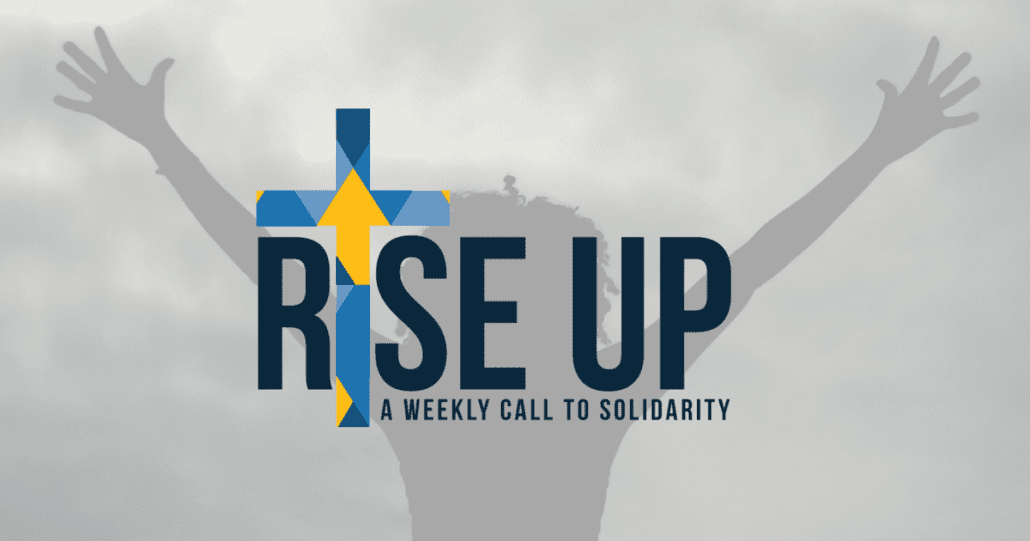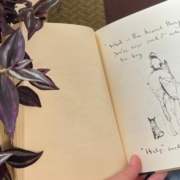Decide Today Whom You Will Serve
BY KATIE LACZ | August 27, 2018
Sunday’s Readings

In the wake of yet more horrific truth about the depths of child abuse in the ranks of the Church, I’m more than ready for a modern Joshua to haul our church leaders before God and everybody, and demand them to answer: “Decide today whom you will serve.”
Will you serve your power and authority?
Your trappings and reputation?
Or will you serve the God of the Exodus, who took the side of the enslaved and abused and set them free?
The Christ who came to us poor, loving and serving those who were considered least, modeling the self-sacrificial love that changed the course of history?
What kind of relationships will you model for us?
Because ultimately, the issues raised in this week’s readings are questions about relationship. Joshua knew deeply the covenantal relationship the Israelites had entered into with God, and was calling them back to fidelity to their Loving Liberator.

Paul’s letter to the Ephesians, that minefield of a reading we’d rather not deal with, is essentially an invitation to relationships of mutual love and self-sacrifice, even if it is steeped in the problematic attitudes of its time. (But: for a man to be told love his wife as his own body was, in fact, a radical step forward in such a patriarchal society.)
And the Gospel’s “hard saying” is all about the mystery of the relationship Jesus invites his followers into. As Jesus gives us his mortal flesh—his body that can die—he invites us into a new Passover meal, a new understanding of covenant with the One who shows us how to offer himself fully. Jesus’ relationship with us is not just body, and not just spirit—it is the two together, intertwined, necessary. He uses the reality of eating, of consuming, to remind us of how intimately we become one with God.
We are called into relationships that emulate our most important relationship: the one with the God whose love and immanence sets us free from that which enslaves us. The God whose love and immanence reminds us that we are not simply flesh or just disembodied spirit, but both together, in such a way that when one suffers, the other is wounded, too.
We are crying out, like Joshua, decide today whom you will serve. We struggle like the disciples with the hard sayings of Jesus, the mystery of flesh and blood, life and death, woundedness and healing, spirit and covenant. We long for the relationships among us – and of the leaders of our church – to be ones of loving self-sacrifice. And when we instead see self-protection and reputation-laundering, when we see the bodies and spirits of children abused and violated, we are rightly appalled. We believe in a God who stands on the side of the oppressed, not those who would shield the oppressors.
And let us remember – we are the people of God, we are the Church, it is our house. If our nominal leaders cannot decide today whom they will serve, we have the right to proclaim in one voice, “As for me and my house, we will serve the Lord.” We will be the face and hands of the God of the psalms who is close to the brokenhearted and crushed in spirit. We will confront evildoers. We will trust in the One who offers himself to us, flesh and spirit, intimately, selflessly, for our freedom and our healing.
Katie Lacz is a mother, an M.Div., and a spiritual director living outside Boulder, CO. She currently works as Program Associate for the Women’s Ordination Conference. A former Jesuit Volunteer (Raleigh ’06-’07), she continues to seek the magis while living in the messy and beautiful work of raising her two small children.









This is truly beautiful
Thank you for expressing my own feelings! Well said!
I seriously believe that all of those that covered the abusers, and continue to do so, need to resign of their titles and face the criminal charges, together with the abusers, until this happens, there cannot be healing or closure for the living victims and the Church as a whole.
We believe in a God who stands on the side of the oppressed, not those who would shield the oppressors – Well said.